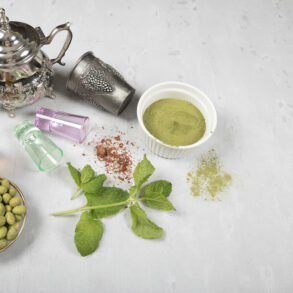Okra, or “lady’s finger,” is a green vegetable packed with nutrients. It is popular in many parts of the world. People use it in various dishes due to its unique taste and texture. Besides being delicious, okra offers many health benefits. Let’s explore how okra can improve your health.
Okra Benefits in Nutritional Value
Okra Benefits are low in calories but rich in vitamins and minerals. A cup of raw okra contains:
- Calories: 33
- Carbohydrates: 7 grams
- Protein: 2 grams
- Fiber: 3 grams
- Vitamin C: 36% of the Recommended Daily Allowance (RDA)
- Vitamin K: 40% of the RDA
- Folate: 15% of the RDA
- Magnesium: 14% of the RDA
Okra Benefits Rich in Antioxidants
Okra Benefits is a great source of antioxidants. These are compounds that fight harmful free radicals in the body. Free radicals can damage cells and lead to diseases. Okra contains several antioxidants, including:
- Flavonoids
- Polyphenols
- Vitamin C
Benefits for Digestive Health
Okra is high in dietary fiber. Fiber is essential for good digestion. It adds bulk to the stool and helps prevent constipation. Eating okra can keep your digestive system healthy.
Blood Sugar Control
Managing blood sugar is important for everyone, especially for people with diabetes. Okra can help with this. Studies suggest that okra may lower blood sugar levels. The fiber in okra slows down the absorption of sugar in the intestines. This helps prevent spikes in blood sugar levels.
Heart Health
Heart disease is a leading cause of death worldwide. Okra can be good for your heart. The fiber in okra can help lower cholesterol levels. Lower cholesterol reduces the risk of heart disease. Additionally, the antioxidants in okra help reduce inflammation and improve heart health.
Boosts Immune System
A strong immune system is crucial for fighting off illnesses. Okra is rich in vitamin C. This vitamin is known to boost the immune system. It helps the body produce white blood cells. These cells are essential for fighting infections.
Bone Health
Okra is a good source of vitamin K. Vitamin K is important for bone health. It helps the body absorb calcium, which is necessary for strong bones. Regular intake of okra can help prevent bone-related problems like osteoporosis.
Skin Benefits
The antioxidants and vitamins in okra are also good for your skin. Vitamin C helps in the production of collagen. Collagen is important for skin elasticity and health. Okra can help keep your skin looking young and vibrant.
Eye Health
Okra contains vitamin A and beta-carotene. These nutrients are vital for eye health. They help prevent eye problems like cataracts and macular degeneration. Including okra in your diet can help maintain good vision.
Pregnancy Benefits
Pregnant women need extra nutrients for their health and the baby’s development. Okra is rich in folate, which is important during pregnancy. Folate helps prevent birth defects in the baby’s brain and spine.
Weight Loss
If you are trying to lose weight, okra can be a good addition to your diet. It is low in calories and high in fiber. This makes you feel full for a longer time and reduces the urge to eat more.
How to Include Okra in Your Diet
There are many ways to enjoy okra. You can eat it raw, cooked, or pickled. Here are some popular methods:
- Boiled Okra: Boil okra in water for a simple and healthy side dish.
- Stir-Fried Okra: Stir-fry okra with spices and vegetables for a quick meal.
- Okra Soup: Add okra to your soups for extra nutrition and flavor.
- Pickled Okra: Pickling okra is a way to preserve it and enjoy its benefits throughout the year.
Okra Recipes to Try
Here are some easy recipes to include okra in your meals:
Okra Stir-Fry
Ingredients:
- 1 pound okra, sliced
- 1 onion, chopped
- 2 tomatoes, chopped
- 1 teaspoon cumin seeds
- 2 tablespoons oil
- Salt to taste
- Spices of your choice (turmeric, chili powder, coriander powder)
Instructions:
- Heat oil in a pan.
- Add cumin seeds and let them sizzle.
- Add chopped onions and sauté until golden brown.
- Add tomatoes and cook until soft.
- Add sliced okra and spices.
- Cook on medium heat until okra is tender.
- Serve hot with rice or bread.
Okra Soup
Ingredients:
- 1 cup okra, sliced
- 1 onion, chopped
- 2 cloves garlic, minced
- 1 carrot, chopped
- 1 potato, chopped
- 4 cups vegetable broth
- 1 tablespoon oil
- Salt and pepper to taste
Instructions:
- Heat oil in a large pot.
- Add onions and garlic, sauté until soft.
- Add carrots and potatoes, cook for a few minutes.
- Add okra and vegetable broth.
- Bring to a boil, then reduce heat and simmer until vegetables are tender.
- Season with salt and pepper.
- Serve hot.
Tips for Buying and Storing Okra
- Selecting Okra: Choose fresh, firm, and bright green okra. Avoid okra that is soft or has brown spots.
- Storing Okra: Store okra in the refrigerator. It is best to use it within a few days for maximum freshness.
- Freezing Okra: You can also freeze okra. Blanch it in boiling water for a few minutes, then transfer to ice water. Drain and freeze in airtight containers.
Possible Side Effects
While okra is generally safe to eat, it can cause some side effects in certain people:
- Digestive Issues: Eating too much okra can cause gas and bloating due to its high fiber content.
- Kidney Stones: Okra contains oxalates, which can contribute to kidney stones in susceptible individuals.
- Allergies: Some people may be allergic to okra. If you experience symptoms like itching, swelling, or difficulty breathing after eating okra, seek medical attention.










